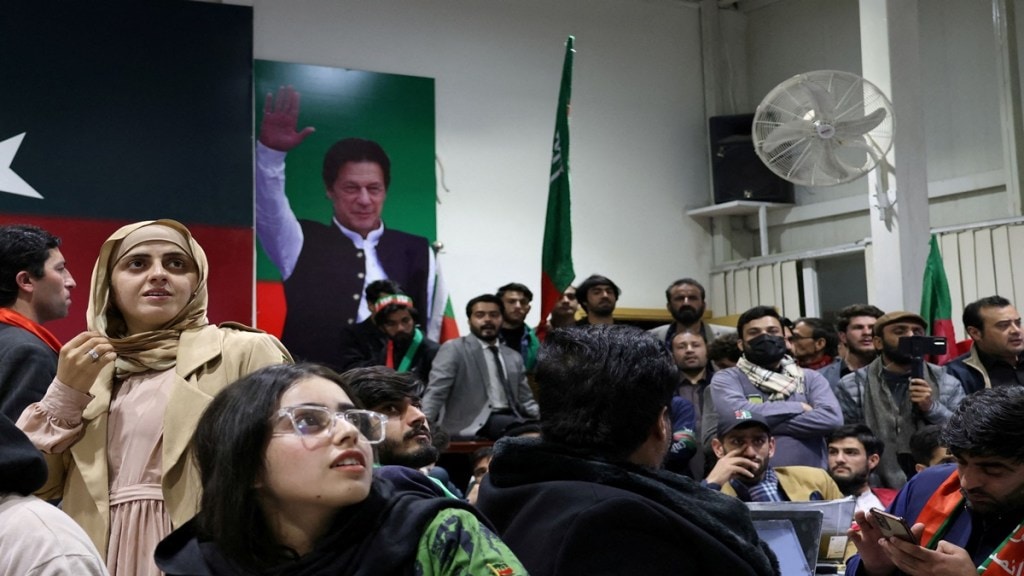The aftermath of Pakistan’s general elections remains shrouded in uncertainty as two major political leaders assert victory, despite the Election Commission of Pakistan (ECP) withholding final poll results.
Current Electoral Standings
Unofficial provisional results released by Geo News shed light on the evolving electoral landscape. Out of 266 seats, 241 have been accounted for, revealing a significant lead for independent candidates, predominantly supported by the Pakistan Tehreek-e-Insaaf (PTI), securing 97 seats. In contrast, the Pakistan Muslim League-Nawaz (PML-N), touted as the single largest party, trails with 72 seats, while the Pakistan Peoples Party (PPP) secures 52 seats. Additionally, other parties such as the Muttahida Qaumi Movement-Pakistan (MQM-P), Jamiat-e-Ulami-Faizal (JUI-F), and Balochistan National Party (BNP) have secured 15, 3, and 2 seats respectively.
Imran Khan’s Assertion
Former Prime Minister and PTI founder, Imran Khan, took to social media to deliver what he termed as a ‘victory speech’, highlighting the purported failure of the ‘London Plan’ orchestrated by PML-N leader, Nawaz Sharif. Khan credited the massive voter turnout for thwarting Sharif’s strategy, emphasizing the significance of citizen participation in upholding democratic principles. He criticized Sharif’s leadership acumen, especially in light of his party trailing in 30 seats.
Nawaz Sharif’s Vision
On the opposing front, Nawaz Sharif, a three-time premier, asserted PML-N’s dominance in the electoral arena, expressing aspirations to lead the country towards prosperity while fostering peaceful relations with neighboring nations. Speaking at a rally in Lahore, Sharif outlined his vision for Pakistan’s development, promising initiatives to mend the nation’s socio-economic fabric. His agenda includes infrastructure development, educational and healthcare reforms, and measures to alleviate inflation and unemployment.
Proposed Coalition Government
In a bid to consolidate power amidst a fragmented mandate, Sharif announced intentions to form a united government with former allies, including the Pakistan Peoples Party, Jamiat Ulema-e-Islam (F), and Muttahida Qaumi Movement (Pakistan). This move signifies a strategic maneuver to navigate the complexities of post-election governance and potentially strengthen PML-N’s grip on political affairs.
As the nation awaits the ECP’s official declaration, the political landscape remains fluid, with uncertainty casting a shadow over the future trajectory of Pakistan’s governance.
(With Agency Inputs)

